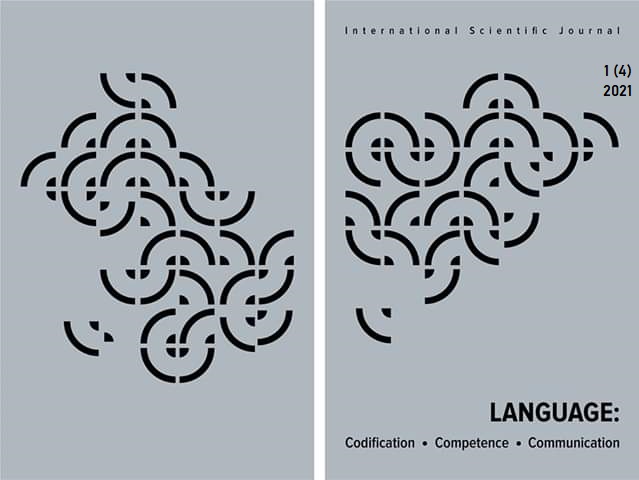ADVANTAGES AND DISADVANTAGES OF GLOBALIZATION OF THE ENGLISH LANGUAGE FOR UKRAINIAN PEOPLE
DOI:
https://doi.org/10.24025/2707-0573.9.2024.293258Abstract
Since English is used for business and international trade in addition to being the official language of many international organizations (such as the UN, WHO, etc.), it has become a lingua franca in the modern world. English language lessons are widely taken and required in many secondary schools globally. English is now taught in many states' schools as a required foreign language, sometimes substituting other languages. Taking into account the rapid spread of the English language, the article examines the main advantages and disadvantages of English being a global language providing an example of Ukrainians living abroad and in their home country. With the help of postcolonial and globalization theories, it is shown that the spread of English is a result of the British Empire and the rise of the United States as a global actor in international relations thereafter. On the contrary, the linguistic human capital theory and theory of cultural capital underline that language proficiency can be a limitation and a getaway in socioeconomic situations. The article is conducted in a qualitative research method, namely online surveys aimed at Ukrainians in Poland, Estonia, Germany, Spain, and Ukraine. The results indicate that English being a global language provokes inequalities between people as well as people abroad are motivated to learn English because of better job opportunities. On the other hand, the number of people motivated to learn English in Ukraine is much higher.
Published
Issue
Section
License
Copyright (c) 2023 Марія Макаренко, Аріна Сидоркіна, Олексій Шпак, Володимир Півненко

This work is licensed under a Creative Commons Attribution-NonCommercial 4.0 International License.
Authors hold full copyright and at the same time they transfer the publishing rights to the journal. The author of a published article has the right to distribute it, post the work in the electronic repository of his/her institution, publish as a part of a monograph, etc. with a required link to the place (output) of its first publication.
The authors confirm that the scientific article submitted for publication has not previously been published and has not been submitted to the editorial office of other journals.
If you have any questions, please contact us:
email: ukrmova@chdtu.edu.ua, o.pchelintseva@chdtu.edu.ua
Viber / WhatsApp: +38 093 789 09 27


